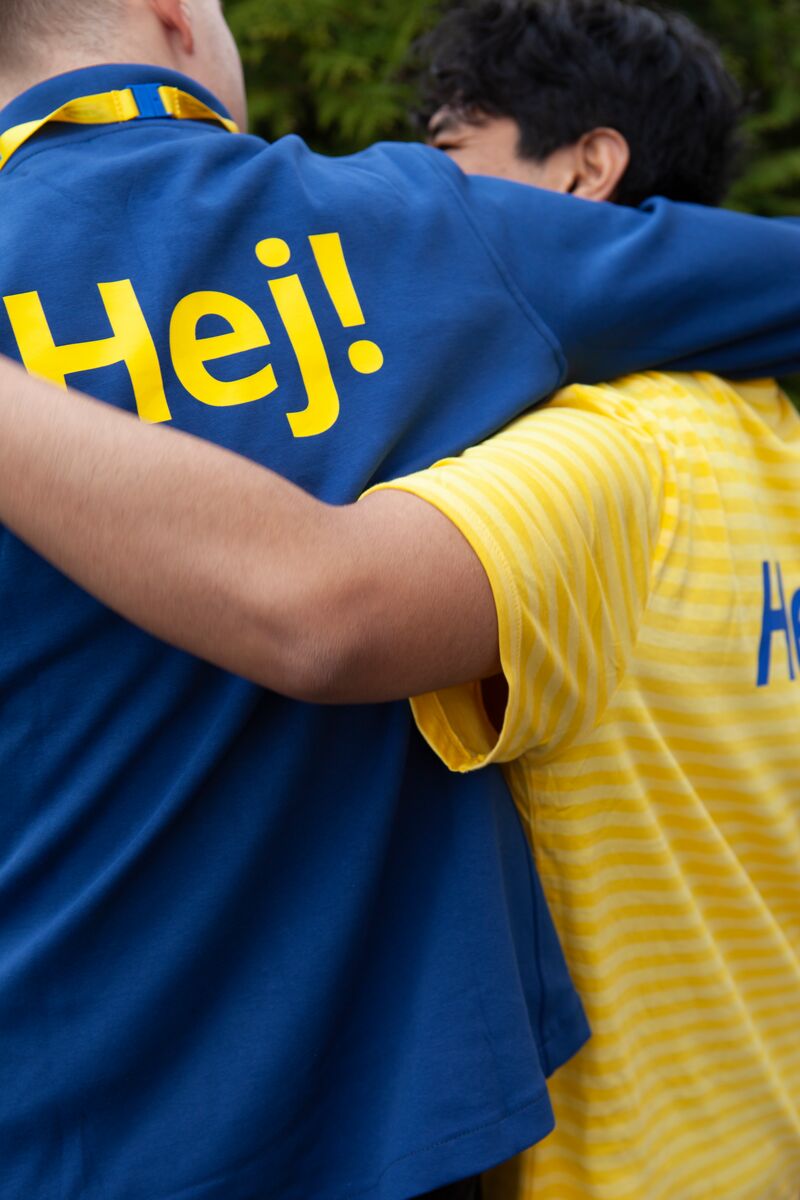
IKEA UK is marking a key milestone in its ambition to support refugees back into employment this Refugee Week in the UK, as the brand celebrates the strength and resilience of 140 forcibly displaced people who have successfully completed the UPPNÅ Skills for Employment programme.
Since April 2021, the UPPNÅ scheme has provided training and an 8-week paid work experience placement to refugees in local communities, opening pathways to work by developing the skills required to gain employment, either inside or outside of the IKEA business. In 2023, 89 percent of UPPNÅ graduates have gone on to secure permanent roles at IKEA to date, and almost half (68) of all participants that have completed the programme since its launch remain IKEA UK co-workers today, in retail stores and distribution centres across the UK.
Supporting IKEA’s mission to create a better everyday life for the many people, the initiative has transformed the lives of refugees throughout the UK and Ireland, and the brand is firmly on track to achieve its goal of providing 180 placements in three years (FY21-23) by the end of August. IKEA is also continuing its work to ‘Change the Narrative’ around refugees, highlighting their value to businesses, host communities and society at large by tackling common misconceptions.
IKEA works in partnership with Refugee Council Hubs across the UK to offer crucial support, advice and a place to come together for refugees. Refugees seeking support can access a range of services including CV writing, job application support, interview techniques and customer service training, as well as an introduction to the UK’s labour market.
UNHCR, the UN Refugee Agency, says the number of forcibly displaced people worldwide rose dramatically to 108 million people at the end of 2022, including 36.5 million children and that the number will continue to rise. As of November 2022, there were 231,597 refugees, 127,421 pending asylum cases and 5,483 stateless persons in the UK.
Darren Taylor, Country People and Culture Manager, at IKEA UK&IE, said: “In the UK, we’ve been working to create a positive change with and for refugees in our neighbourhoods since 2016, through a combination of local projects, donations and IKEA’s own UPPNÅ Skills for Employment programme. Opening doors for refugees to access the labour market and build a better, brighter future here in the UK has never been more important than it is today. At IKEA, we believe that refugee integration is good for both business and society, and that we have a responsibility to stand with all those in need – by improving the long-term prospects for as many refugees as possible.”
UPPNÅ Skills for Employment programme case studies
Farzad is a refugee from Iran, who continued employment at IKEA Leeds for a number of years following completion of the UPPNÅ programme. He recently moved to the British Refugee Council, where he is currently supporting other refugees through the organisation’s resettlement programmes.
“Getting my refugee status was like being born again. You’re allowed to work and get your driving license. It’s a great feeling, like regaining your identity again. But looking for work was horrible. Despite all of my experiences, whatever I knew at home, it wasn’t useful here. I studied English in Iran, but it wasn’t very useful for the recruiting process. I applied for supermarkets, I was applying for simple jobs, but there were a lot of rejections. It was very tough.
“I think if more companies follow suit, like IKEA, it would be great. When refugees are coming as asylum seekers, it’s very difficult to send them back to their home countries, it’s very dangerous for them to go back. To help people to integrate, give them a chance to work – even simple work. Many people are coming with skills, they just need language to translate the skills into a job. Train them – many of them are very young, very quick to learn.
“I feel a lot better since completing the programme. I’ve made a lot of friends, I’m learning the culture and I feel more integrated into society. It takes time, but I’m going the right way.”
Mohamad is a refugee from Syria, who now works at IKEA’s Wednesbury store in Birmingham.
“It’s very different here from my country. We need opportunities, we know how to work, the language stops us a little bit, but training helps. After five months, IKEA offered me a full-time role, and gave me co-worker of the month. They know that I’m doing good!
“I’m so happy working at IKEA. I feel they are like my family there. All the managers and team leaders are the best, supporting us, helping us to improve. It’s a good company to work for and has values. I’ve seen them in my co-workers, I’ve seen them at work. Refugees deserve to get opportunities. People think refugees are coming to get benefits, that they don’t want to work. But that’s not true. I’m working full time. We want to work.”
A global commitment
IKEA UK&IE launched the UPPNÅ Skills for Employment programme in May 2021 and this framework has now been implemented globally by Ingka Group, the largest IKEA retailer. To date, the Skills for Employment initiative has supported more than 2,400 refugees and asylum seekers in 22 countries to improve their employability and local language skills and provide work experience.
Based on FY21 and FY22 results, 70 percent of participants went on to secure a job at IKEA or elsewhere. The goal is to reach 2,500 participants by the end of 2023. For World Refugee Day this week on 20th June, Ingka Group has launched a “Taking Back the Narrative” campaign to tackle misconceptions about refugees through storytelling, to support greater acceptance and inclusion. Ingka has also approached 500 businesses in the run-up to the Global Refugee Forum at the end of 2023 to inspire the private sector to accelerate the labour integration of refugees and asylum seekers.











